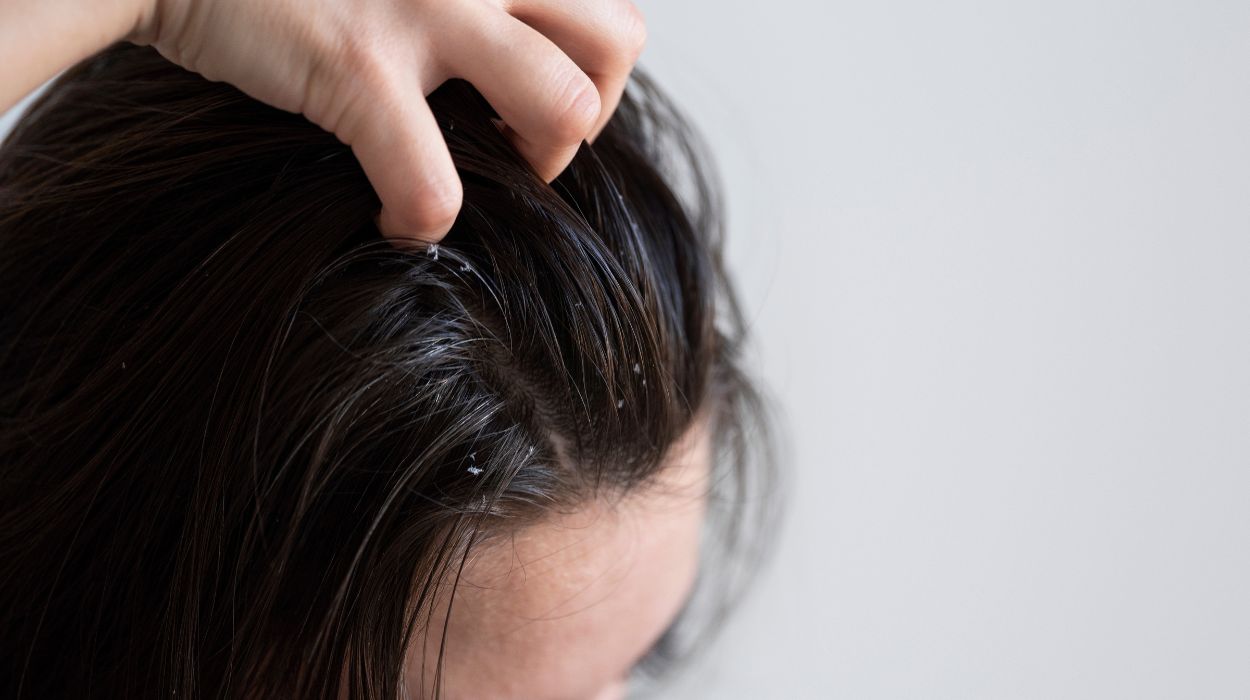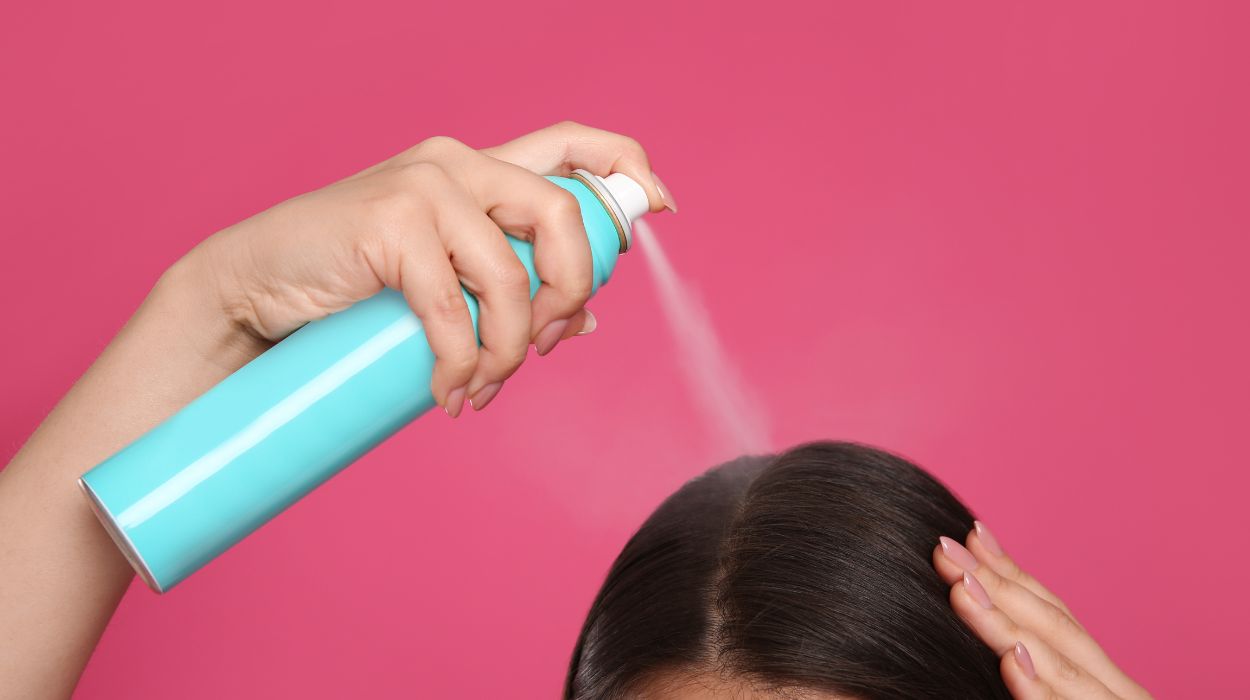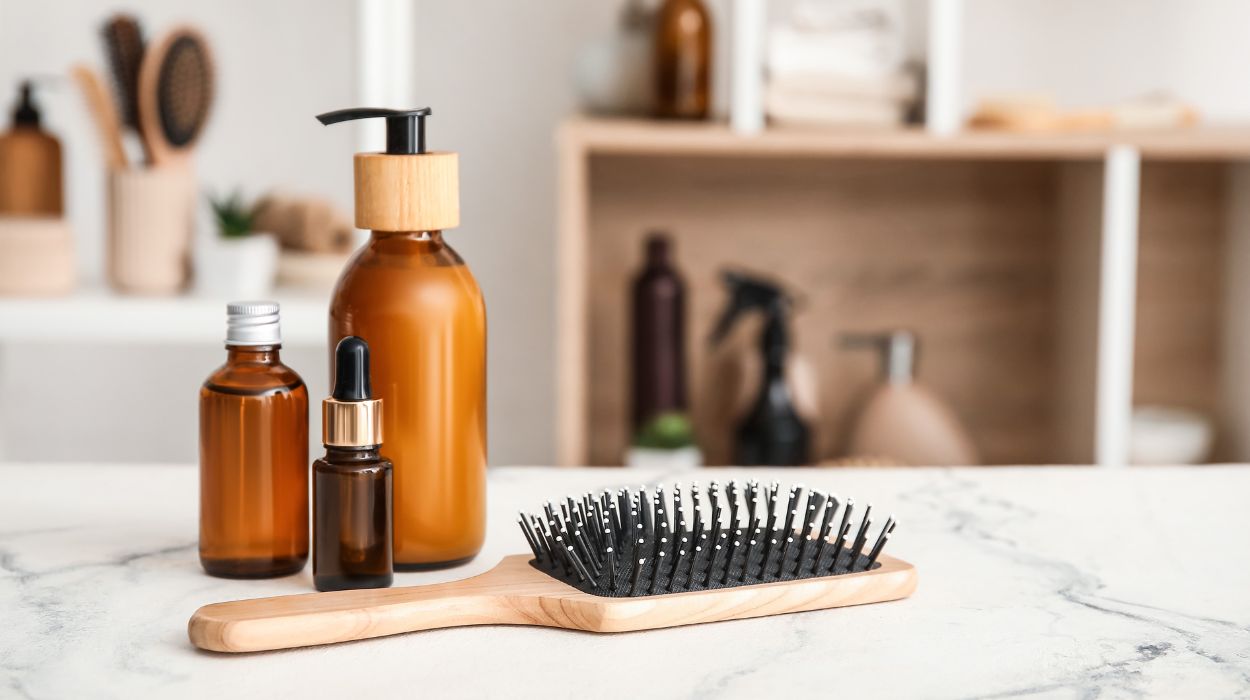 Expert's opinion
Expert's opinion
Expert's opinion
The article is a subjective view on this topic written by writers specializing in medical writing.
It may reflect on a personal journey surrounding struggles with an illness or medical condition, involve product comparisons, diet considerations, or other health-related opinions.
Although the view is entirely that of the writer, it is based on academic experiences and scientific research they have conducted; it is fact-checked by a team of degreed medical experts, and validated by sources attached to the article.
The numbers in parenthesis (1,2,3) will take you to clickable links to related scientific papers.
Why Is My Hair So Oily? Reasons Why & Home Remedies In 2024

The natural oils produced by the sebaceous glands help to keep your hair hydrated and protected from dryness and damage. However, those oils accumulate over time, and if you don’t wash your hair often enough, you can feel “my hair is so oily”, and end up with an oily scalp and stringy strands.
Healthy hair is going to get oily — that’s a fact. How quickly it happens, however, depends on the rate of oil production, which varies from person to person.
If you want to answer the question, “Why is my hair so oily,” you’ll need to take a look at your hygiene habits, hair type, and various lifestyle factors. In this article, we’ll help you answer questions like “Why does my hair get greasy so fast?” and figure out what to do about it.
Why Is My Hair So Oily?
Why does my hair produce so much oil? If your hair gets greasy quickly, you may have overactive sebaceous glands. Excess oil on the hair and scalp can also be related to hygiene habits and lifestyle factors, such as the type of hair products you use. Natural remedies can help control an oily scalp.
Is Oily Hair Healthy?
The skin on your body is covered in hair follicles, and at the root of each is a sebaceous gland. These glands produce oily[1] sebum, which helps build the skin’s waterproof barrier to protect against environmental aggressors. The hair follicles in your scalp also produce sebum to help protect your hair against dehydration which can make it brittle and prone to breakage and damage.
A little oil in your hair is natural and healthy, but excess oils build up over time and can give your hair a greasy appearance. However, just because you struggle with oil buildup doesn’t necessarily mean your hair is unhealthy.
The sebum your scalp produces is essential to maintain healthy hair, but greasy strands can be unattractive and difficult to style, particularly for straight hair. Excess sebum production may not be something you can change, depending on your hair type, but there are simple ways to absorb excess oil to keep your hair looking clean.
Treatment For Your Greasy Hair
The best treatment for greasy hair is to wash your hair. That said, washing your hair too often can lead to another set of problems.
Overwashing can contribute to excess oil production — especially if you use very hot water or certain hair products. Hot water strips the skin of its natural oil, which may make your hair feel nice and clean. Unfortunately, when the hair root dries out, it sends a message to the sebaceous glands to produce more oil. The best option is to maintain the right oil balance in your hair and scalp.
If you’re concerned about greasy roots, the following treatments may help.
Clarifying Shampoo
These shampoos are designed to cleanse the hair and scalp of excess hair oils and product buildup. If you also struggle with dandruff, look for a shampoo that contains salicylic acid. Salicylic acid is an exfoliator[2] commonly used in acne treatments that help remove dead and dry skin.
Dry Shampoos

If you’re looking for a quick solution for mild oily buildup, dry shampoo is a good option. These styling products contain absorbent ingredients that soak up oil from the scalp and hair shaft. Just be sure to use dry shampoo sparingly because overuse can lead to buildup and hair breakage.
Oily Hair Products

If you find your hair greasy the day after you wash it, you may simply have oily hair. Some of the causes of oily hair are genetic, so it might not be something you can control. By choosing hair products formulated for oily hair, however, you may be able to prevent oily roots from developing so quickly while keeping your hair healthy.
Home Remedies To Treat Your Oily Hair
When it comes to hair care, natural ingredients are preferable. Harsh, synthetic ingredients can irritate your scalp, leading to dry hair. If you’re looking for a simple at-home solution to reduce oil, here are a few options:
- Essential oils. A few drops of the right essential oil diluted in water make for a great hair rinse to control oil. Peppermint is one of the best herbs for hair, though tea tree oil is also great for oil control.
- Apple cider vinegar. Some people with oily hair find that a diluted apple cider vinegar rinse helps clarify the scalp and prevent buildup. The antifungal and antibacterial properties of vinegar may also help kill yeast which can contribute to dandruff.
- Saltwater. If you live by the ocean, try saltwater for oily hair with a weekly dip. You can also make a saltwater rinse at home by dissolving half a cup of salt in one cup of water and massaging it into your scalp before rinsing with fresh water.
- Oil-absorbing sheets. Though typically used to absorb oil on the face, you can also press these sheets into your scalp to soak up oil at the roots of your hair.
- Aloe vera. Dry skin produces more oil, so a hydrating treatment like aloe vera may help. Just work a few drops of it into your hair during your normal styling routine.
Store-bought dry shampoo might not be considered a natural remedy for oily hair, but homemade solutions exist. Try applying a little cornstarch to your roots — add a little cocoa powder if you have dark hair so it doesn’t look powdery.
Tips To Prevent Oily Hair
Stop asking yourself, “Why is my hair so oily after washing” and start learning how to care for oily hair properly. The first step is to figure out how often to wash your hair so your hair stays fresh but doesn’t start producing extra oil. It may take some trial and error — if you’re currently washing every day, try going every other day. For average hair, washing every two or three days[3] is often sufficient.
When you shower, be mindful of how much product you use. Using too much conditioner can weigh down your hair. Avoid over-brushing your hair also, as each time you do, you’ll be dragging sweat and sebum from your scalp down the strands of hair. High-heat beauty tools like straightening irons can also spread sebum along the hair shaft.
Another tip to prevent oily hair is to wash your pillowcase frequently. This will also help keep the skin on your face clear because you won’t be sleeping in layers of sweat, oil, and dead skin cells.
Conclusion
If you’ve ever asked yourself, “Why is my hair so oily after one day,” it may simply be a matter of genetics. Some hair types produce more sebum, so it might not be something you can control. If you’re tired of just throwing your hair up into a messy bun the day after washing it, try a dry shampoo or one of the natural remedies listed above.
+ 3 sources
Health Canal avoids using tertiary references. We have strict sourcing guidelines and rely on peer-reviewed studies, academic researches from medical associations and institutions. To ensure the accuracy of articles in Health Canal, you can read more about the editorial process here
- Dermato-Endocrinology. (2017). Recent advances in the endocrinology of the sebaceous gland. [online] Available at: https://www.tandfonline.com/doi/full/10.1080/19381980.2017.1361576
- Arif, T. (2015). Salicylic acid as a peeling agent: a comprehensive review. Clinical, Cosmetic and Investigational Dermatology, [online] p.455. doi:https://doi.org/10.2147/ccid.s84765.
- Rathi, S. and D′Souza, P. (2015). Shampoo and conditioners: What a dermatologist should know? Indian Journal of Dermatology, [online] 60(3), p.248. doi:https://doi.org/10.4103/0019-5154.156355.



